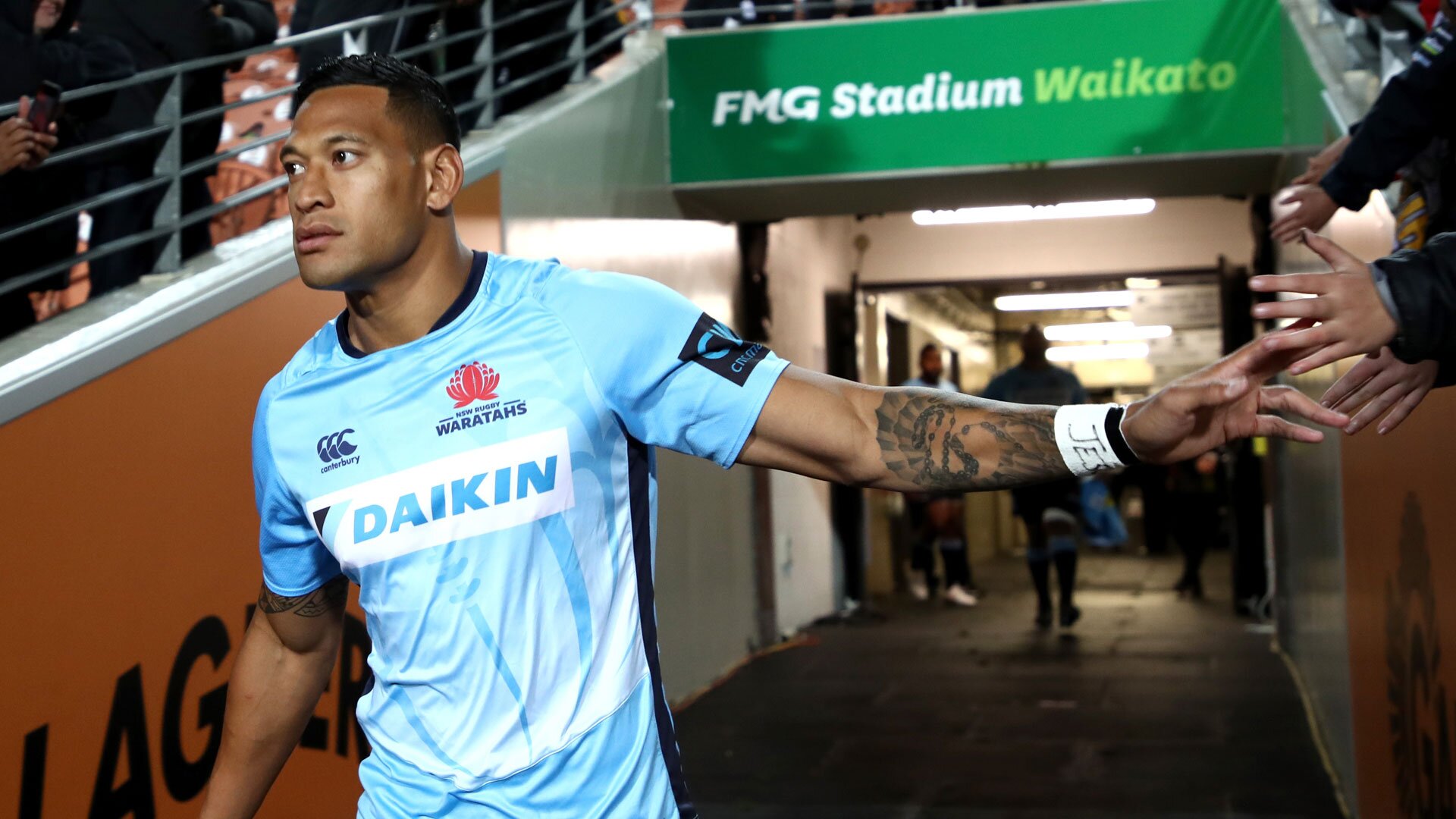Conciliation fails - Israel Folau is heading to court

NZ Herald and news.com.au
Israel Folau and Rugby Australia failed to reach an agreement in today’s conciliation meeting at the Fair Work Commission in Sydney.
Leaving the building shortly after 1pm alongside his legal team, Folau said he was “very disappointed” in the result.
“Look, we’re very, very disappointed about the outcome today,” he said.
“But I’d like to thank all those who supported me in this time and I’ll continue to stand up for the freedom of all Australians.”
“It appears as though, unless things change, then we will be heading for court,” Folau’s lawyer George Haros told reporters.
Folau’s dispute with the governing body of rugby will now proceed to a formal hearing.
Rugby Australia CEO Raelene Castle avoided the media, taking the lift down to her car and driving off as soon as the meeting finished.
Folau’s team pushed through the throng of reporters at the front, eventually reaching two hire cars, a sleek black Mercedes van and a Holden Caprice.
Not realising the vehicles were waiting for him, Folau started to power down William Street, but was quickly called back by his lawyer.
The football star arrived in a taxi with his legal team minutes before his conciliation hearing was due to start, dressed in a black suit, buttondown shirt and red tie.
Forced to negotiate a heavy media scrum and with nowhere to park, the Wallabies full-back was forced to pull back as his taxi sped up William Street away from the entrance to the building.
After sitting in the taxi for a few minutes, Folau and his team left the vehicle and began the walk back down the hill. Naturally, they were immediately surrounded by cameras and reporters.
“I’m hoping for an apology. I’d be happy with that,” Folau told journalists on his way to the entrance.
The sacked football star cracked a brief smile when a morning commuter told him he was praying for him.
“God goes with you brother,” the man said, before walking away.
“Thanks mate,” Folau replied, looking back and smiling.
Folau came through the building’s front entry, stopping traffic as his taxi navigated Sydney’s peak hour.
Ms Castle again decided to avoid reporters and enter quietly through the building’s back entrance, parking beneath the Fair Work Commission.
News.com.au understands the building rostered on extra security guards today as a precaution for Folau’s high profile conciliation meeting. Those guards refused reporters entry to the venue.
As the football star and his legal team piled into the building’s lift, Folau turned and faced the cameras for a final time and let out a relieved laugh before the doors shut.
Level 14, where the meeting is taking place, is under such high security that it cannot be reached without a special pass.
A curious bystander, questioning why a media scrum was sitting on a Sydney street, joked he could hire Folau if the fired football star was looking for a job.
“I manage a cafe nearby, he can bring his resume into me if he wants to,” he said.
The public debate over Folau’s conduct and Rugby Australia’s decision to terminate his contract has intensified over the past week after the sacked rugby player asked Australians to fund his case.
Now the venue for that argument is finally shifting from the media to the legal system.
Folau has lodged a claim of unfair dismissal with the Fair Work Commission, seeking $10 million in compensation. Half of that is to cover his lost salary, with the other half accounting for damages and lost earning opportunities, such as sponsorships.
He argues he was fired for expressing his religious beliefs. Rugby Australia says it tore up his contract for violating its code of conduct.
This article originally appeared on nzherald.co.nz and is republished with permission.

















